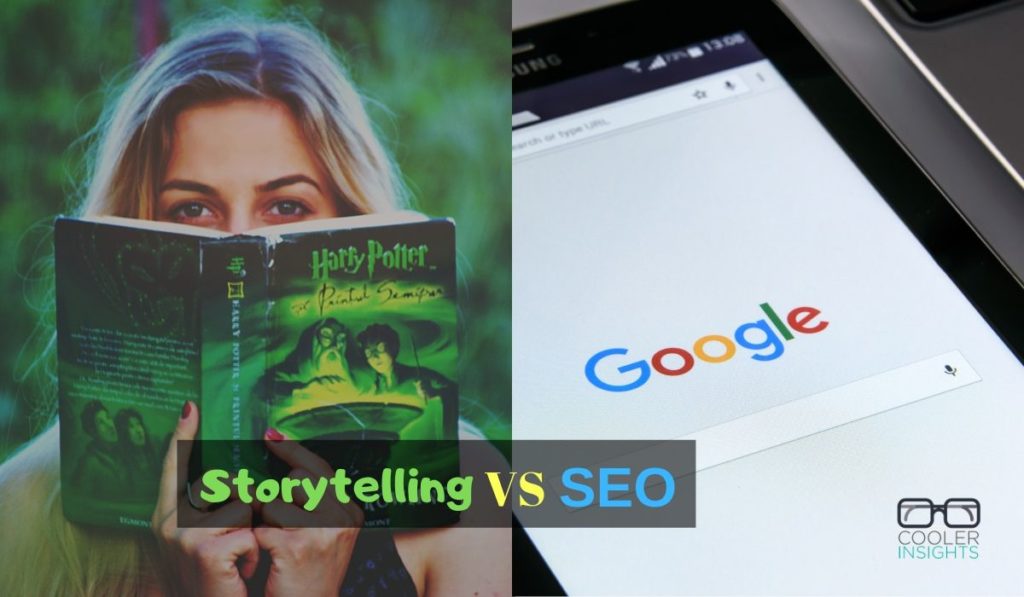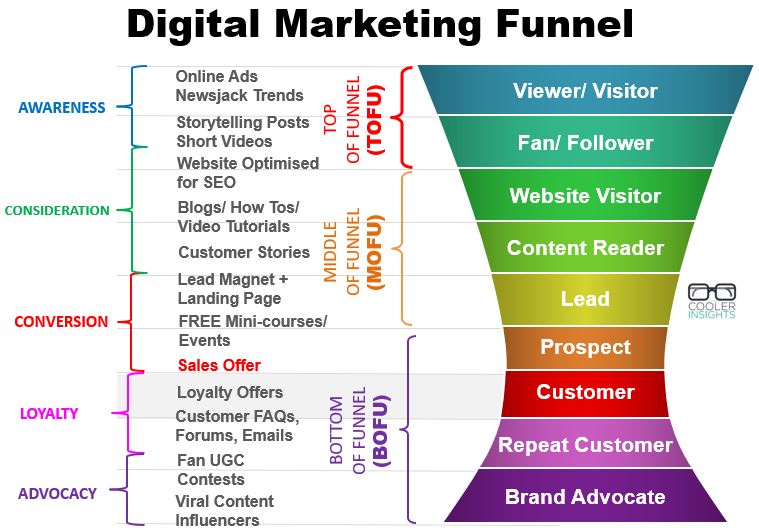
Storytelling is the new buzzword in content marketing circles. And for good reason too, given how important stories are in the art and science of marketing persuasion.
But how do we reconcile storytelling with Search Engine Optimization (SEO)—the technique of using targeted content to attract organic search engine traffic?
In my years of writing and producing online content for websites, social media pages, video channels, and emails, I discovered that the best content strategy involves using BOTH SEO and storytelling to optimize your results.
Before you can do this, however, you need to understand the differences between the two. You need to also learn how you can employ them in tandem.
In this article, you will discover the following aspects of both content strategies:
- Definition of storytelling plus examples
- Definition of Search Engine Optimization (SEO) plus examples
- The pros and cons of the two
- How storytelling and SEO can work in tandem
What is Storytelling?
Storytelling describes the activity of writing, producing or sharing stories.
Most stories have a setting where the story occurs, a hero (or protagonist), a mentor (or helper), conflicts and challenges, a climax, a way to resolve the conflict, and a happy ending. These elements are assembled into a plot or narrative format—from the simple three-act structure to the more complex Hero’s Journey by Joseph Campbell.
Stories can exist in virtually any media:
- Books and magazines
- Movies and videos
- Plays and operas
- Websites
- Social media pages
- Songs and musical performances
- Live events
Often, good storytelling involves incorporating humour as a dominant emotion.
Examples of Storytelling in Content Marketing
In the context of Content Marketing, stories are normally used to strengthen the emotional connection between a brand and its audience. Studies have shown that stories can be up to 22 times more memorable than plain facts alone.
By influencing the right brain of your prospects, stories can also be powerful viral marketing agents. This is why they are hot favourites among content marketers who seek to grow brand awareness and generate leads online.
Often, stories are the preferred forms of content on social media channels like Facebook, Instagram, LinkedIn, Twitter, YouTube and Pinterest. They help to attract attention from fresh audiences, and help your brand to extend its reach.
GoPro is an example of a brand which took storytelling to new heights. It was founded in 2002 by Nick Woodman—a surfer, skier and motorsports enthusiast in search of a better way to film himself and his friends surfing. What started with a 35mm camera and a wrist strap made from old wetsuits and plastic scraps has grown into an international company that sold over 26 million GoPro cameras in more than 100 countries.
Have a look at how its founder became a billionaire in this Forbes video.
What is Search Engine Optimization (SEO)?
If storytelling seeks to satisfy the heart, search would seek to satisfy the curious mind. Or perhaps the rational part of the brain seeking answers to a specific problem.
Defined as the process of “getting traffic from free, organic, editorial or natural search results on search engines,” Search Engine Optimization (SEO) primarily functions based on the principle of providing the best answer to a search query on Google (or other search engines).
The practice of SEO normally involves a series of processes to optimize the following:
- On-Site SEO: Use of the right content architecture, technical enhancements (eg uploading speed), meta-descriptions and meta-tags, image tags, and other features
- On-Page SEO: Addressing specific long-tail SEO keywords, while considering factors such as competition, crafting of Google-friendly snippets, keyword placements and volumes, content length, etc
- Off-Page SEO: Building the right links from high authority websites, submitting website to directories, tapping on Google’s MyBusiness, and sharing content through social media
Examples of SEO in Content Marketing
SEO is one of the key strategies in content marketing—often SEO-experts often need to work with content strategists to produce content that is not only optimized for search engines, but fit for human consumption.
This is important as one of the major ranking factors for pages is the length of time spent on a page. Poorly crafted content that does not get read or watched to the end tends to rank poorly relative to those which has better content stickiness.
HubSpot is a company that does very well on search engines for digital marketing terms. Try typing in search terms like “content marketing,” “Instagram marketing,” or “social media marketing,” and you’ll likely see a page from HubSpot that is indexed on page one of Google’s Search Engine Results Page (SERP).

Courtesy of HubSpot
How Storytelling and SEO Compares
While both storytelling and SEO type content may both sit on your website, there are some differences between the two. Let us first look at the pros and cons of storytelling, followed by the pros and cons of SEO-type content.
Pros and Cons of Storytelling
Advantages of Storytelling
- Usually more emotionally compelling and persuasive
- Can be a powerful trigger for action
- Helps to “break-through” the content clutter on social media platforms
- Improves brand affection and likability through emotional resonance
Disadvantages of Storytelling
- Storytelling content normally have a shorter shelf-life than evergreen search-friendly content
- Requires more creativity and imagination to craft a good story
- Needs investment in “push marketing” to get the brand in front of prospective audiences
- Could be perceived as “brand-washing” by sceptical consumers
Pros and Cons of SEO-friendly Content
Advantages of SEO-friendly Content
- Can tap on evergreen traffic for search queries for written, video and image content
- Increases brand trust and reputation through thought leadership
- Audiences who use search normally have a higher buying intent
- Lower need to “push” content through advertising
Disadvantages of SEO-friendly Content
- May be seen as static and less emotionally engaging
- Focus on education (as opposed to persuasion) could reduce audience responses
- Significant time and effort to create solid content for search engines
- Needs to adhere to more rigid norms and structures
How Storytelling and SEO can work together
As storytelling tends to sit more on social media platforms while search-friendly content tend to reside on your website, the two content strategies can work in unison to nudge your prospect along your digital marketing funnel.
Here’s one way to line them all up as your audiences “graduate” from being a viewer or visitor all the way to becoming a customer and possibly a brand advocate.

Here’s how storytelling and SEO-friendly content can be used:
- Awareness: Search-optimised pages for queries can trigger awareness, as do stories that tap on emotions
- Consideration: “How-To” videos and articles that are SEO-friendly, plus founder and customer stories that build brand affection
- Conversion: Use of testimonials and success stories to nudge prospects to purchase
- Loyalty: Tap on SEO-friendly Frequently Asked Questions (FAQs) and helpful content to build loyalty
- Advocacy: Develop User Generated Content (UGC) contests that encourage customers to tell their stories, or work with influencers to incorporate your brand into their life stories
Conclusion
In the fast moving world of content marketing, top brands know that you need both storytelling and SEO-friendly content to win the battle for your customer’s hearts and minds.
By learning about both storytelling and SEO-friendly content strategies, you’ll be better placed to craft the right types of content on the right platforms to move your audience to action.
Are there other differences between the two that we should consider? I’d love to read your thoughts!

Your blog is very nice, thanks to upload this.
Beautiful and fantastic blog.
I just like the helpful information you provide in your articles. I will bookmark your blog and take a look at once more here regularly.
I am somewhat certain I’ll be informed plenty of new stuff right here! Good luck for the following! Digital Marketing Agency
Useful post Thanks for sharing it that’s truly valuable knowledge about similar topic. Amazing. Have a more successful day. Amazing write-up always finds something interesting.